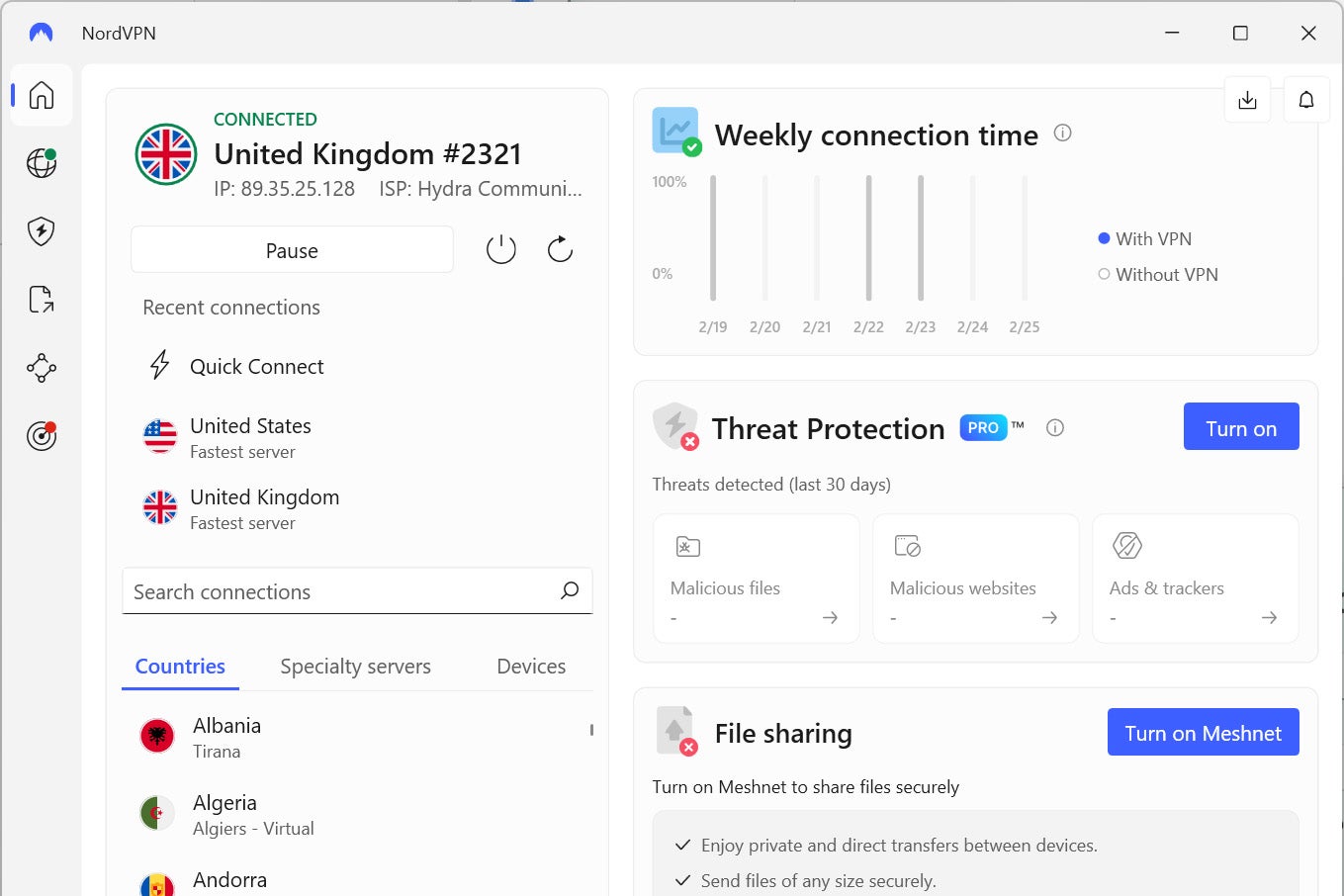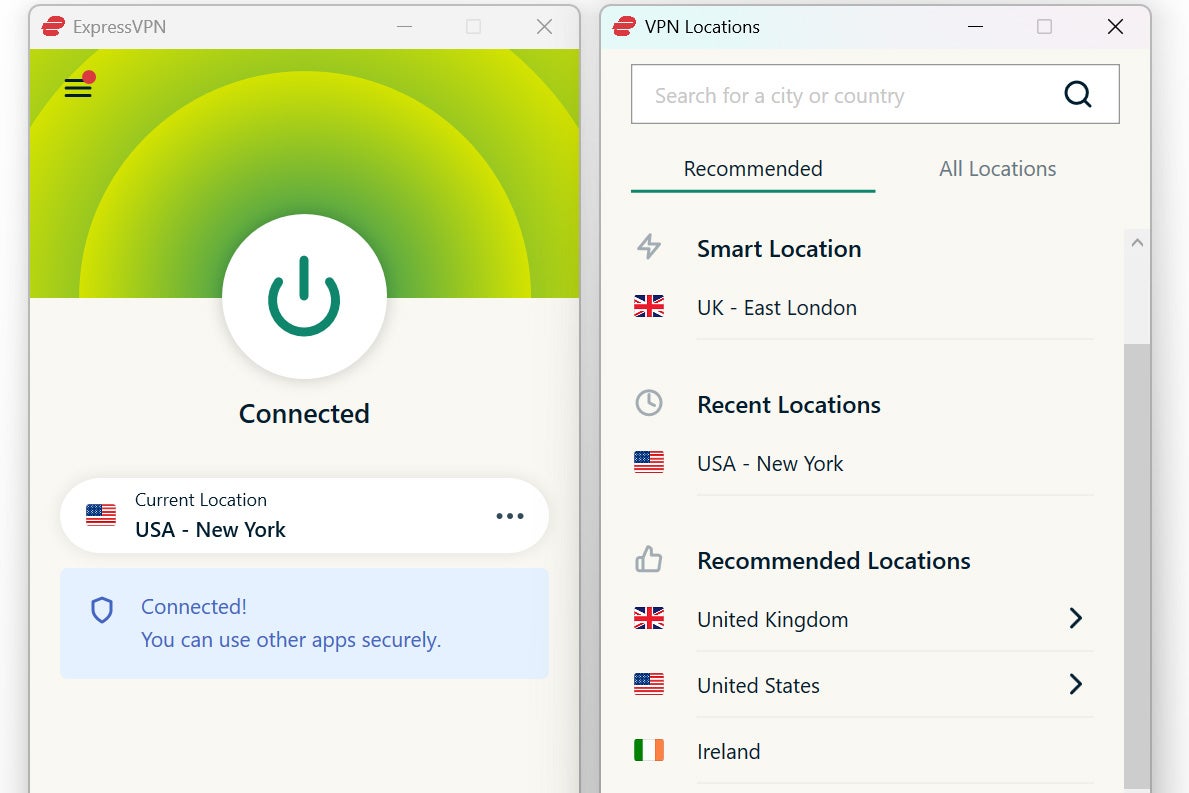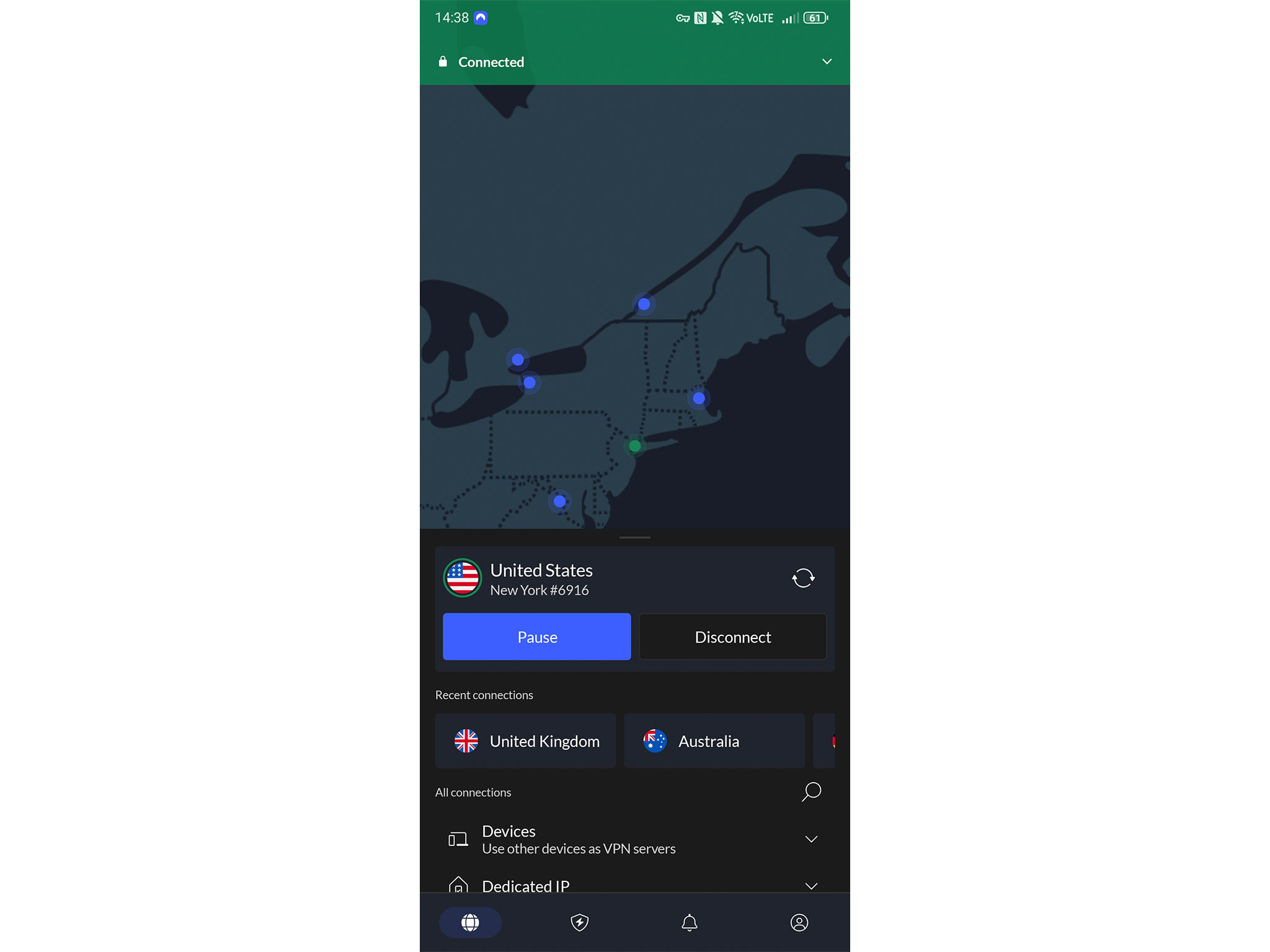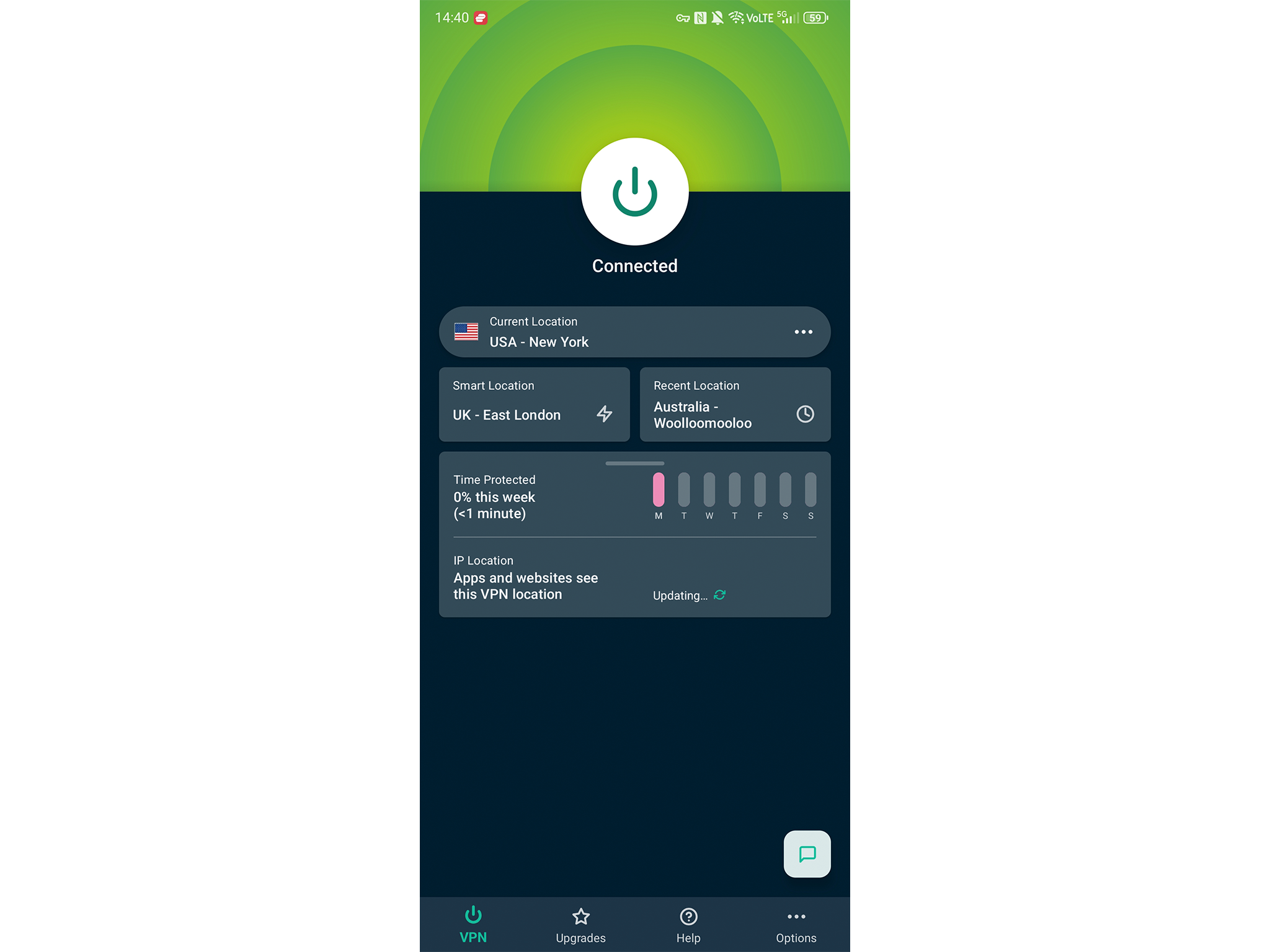ARTICLE AD BOX
When it comes to the best VPNs, NordVPN and ExpressVPN are right up there. They’ve got strong security credentials, speedy streaming performance and are dead easy to use, but which one is better? As with most things, it depends on what you want from your VPN – and how much you’re willing to spend.
Owned by Nord Security – a company that also operates Surfshark – NordVPN is extremely affordable and has a stacked feature list. ExpressVPN, meanwhile, is owned by Kape Technologies. It’s simpler to use, especially for beginners – but it has a much more premium price tag in comparison.
Below, we’ve compared the two to help you decide which is right for you. Whether you prioritise price and features or just want something fast, secure and simple to use, there’s enough there to differentiate them, and it all depends on how you’ll use a VPN or what you want it for.
NordVPN vs ExpressVPN: Price

If you don’t want to spend too much on a VPN, NordVPN is one of the cheapest around (if you opt for a longer-term plan). While ExpressVPN is one of the priciest options, it recently readjusted its subscription tiers, making it a lot cheaper than it was previously (if you opt for one of the longer-term plans), though still expensive in comparison to NordVPN.
NordVPN has three tiers – basic, plus and ultimate. The cheapest option is the 27-month basic plan, which costs £64.53 up-front (about £2.39 per month). The one-year plan costs £46.68 (£3.89 per month), and if you don’t want to be locked into a long contract, the monthly plan costs £10.19 per month. NordVPN is always running various different promotions, so the prices can fluctuate. Also, don’t take too much notice of the “three extra months” messaging underneath the two-year plans, those are usually rolled into the full price.
But NordVPN has more than just one basic plan. You can also opt for the plus plan, which adds malware protection and a password manager. It costs £86.13 for 27 months (£3.19 per month), £56.28 for one year (£4.69 per month) or £10.99 if you’d prefer to pay monthly. The ultimate plan, which includes 1TB of secure cloud storage and cyber insurance covering up to £5,000 if you get scammed online, costs £137.43 for a 27-month plan (£5.09 per month), £80.28 for one year (£6.69 per month), or £12.09 if you’d prefer to pay on a monthly basis. All plans come with a 30-day money-back guarantee, so if it’s not for you, you can cancel within a month for a full refund.
What’s nice about ExpressVPN is that it keeps things simple with one standard tier – you don’t need to upgrade to a plus or ultimate tier to get all of the features. Some might love this, but we can see why some might prefer NordVPN’s pick-and-mix style pricing model. A 28-month plan costs £112.88, which works out to around £4.04 per month. A 15-month plan costs £80.75 (£5.39 per month) and if you prefer to pay for your VPN on a monthly basis, you’ll pay £10.46 per month. Like NordVPN, ExpressVPN also has a 30-day money-back guarantee, so you can get a refund if you’re not entirely satisfied.
A word of advice: If you go for a long-term NordVPN or ExpressVPN plan, set a reminder to cancel before it renews. Once the initial contract is up, the renewal price shoots up significantly, and you might not want to be locked into another two-year subscription, billed at a much higher price. We’ve seen users charged hundreds of pounds because they forgot to cancel, so if you don’t want to be locked into a lengthy back-and-forth with VPN companies, trying to secure a refund, we’d recommend either just being proactive with your cancellation, or opting for the (far safer) monthly option.
Winner: NordVPN
In any case, NordVPN wins this battle. The basic plan costs less, no matter which subscription length you go for – even the monthly plan is cheaper.
NordVPN vs ExpressVPN: Privacy and features

Both NordVPN and ExpressVPN come with the standard security basics you’d expect from any VPN provider. Classic AES-256 encryption is ticked off, there are kill switches, so your internet is cut off if your VPN connection drops, as well as split tunnelling (so you can split certain apps and websites off from the VPN) and DNS leak protection.
NordVPN uses NordLynx, its custom version of WireGuard, while ExpressVPN uses Lightway, a protocol it built from the ground up to be fast and lightweight.
NordVPN also includes a few more advanced features up front. Its Double VPN feature routes your traffic through two servers for extra anonymity, while Onion over VPN lets you route your traffic through the Tor network without using a separate browser. NordVPN also throws in Threat Protection Pro, a built-in tool that blocks malware, ads and trackers system-wide, even when you’re not connected to a VPN server.
ExpressVPN keeps things simpler. It doesn’t offer double VPN or Onion integration, but it has recently introduced a password manager, a tracker-blocking Threat Manager tool and parallel connections, which help connect to servers faster. In early 2025, ExpressVPN also added Lightway Turbo and post-quantum encryption to future-proof its protocol against emerging security threats.
One small difference is device support. NordVPN lets you connect up to 10 devices on one account. ExpressVPN has a limit of eight, which is still decent but might matter if you’re juggling phones, laptops, tablets and smart TVs.
Winner: NordVPN
NordVPN offers a bigger set of features at its base plan, including double VPN and Onion routing, without needing upgrades. ExpressVPN nails simplicity and speed, but NordVPN gives you more tools for a cheaper price.
NordVPN vs ExpressVPN: Logging and transparency

Both NordVPN and ExpressVPN state that they don’t keep logs of your data, and both have had that claim independently audited multiple times.
NordVPN has been through five no-logs audits since 2018, the latest was completed by Deloitte in February 2025. Deloitte looked at NordVPN’s server setups and IT systems and confirmed there wasn’t any data collection or retention. On top of that, NordVPN also had all its apps and extensions audited by Cure53 between June and August 2024. While it uncovered 31 minor security issues (some more serious than others), most were patched quickly, and no critical security issues were found.
ExpressVPN has a longer track record of audits – more than 22 independent ones now, including a major audit by KPMG in May 2024, which signed off on its no-logs policy and TrustedServer tech. Plus, there’s the real-world proof from 2017, when Turkish authorities seized an ExpressVPN server but found absolutely nothing, thanks to its RAM-only setup.
NordVPN is based in Panama, which has no data retention laws, and ExpressVPN is based in the British Virgin Islands, which is also privacy-friendly.
Ownership may also factor into your choice. NordVPN's parent company, Nord Security, is seen as a cybersecurity-first firm, and it doesn’t have much of a shady past. ExpressVPN’s owner, Kape Technologies’ history is a little bit murkier, however. Kape used to distribute adware and malware before it bought a tranche of VPN providers, including ExpressVPN, CyberGhost and Private Internet Access. Kape has cleaned up its act since, but it’s still something to be aware of.
Winner: Draw
Both VPNs have been independently audited and boast RAM-only servers. While NordVPN has more frequent no-log audits, both are trustworthy providers who’ve been going for quite a while.
NordVPN vs ExpressVPN: Performance and speed

NordVPN is one of the fastest VPNs we’ve tested. On a 67Mbps UK fibre connection, using NordLynx, download speeds only dropped by around four per cent. Even connecting to US servers only slowed things down by about nine per cent.
ExpressVPN is close behind. Using its Lightway Turbo protocol, UK speeds dropped by about five per cent, and US connections saw about an eight per cent dip. Both VPNs kept streaming and gaming fast and smooth.
Where NordVPN edges ahead is server customisation. The desktop app lets you set server presets, monitor dark web breaches, and tweak connection types. ExpressVPN, in contrast, keeps things clean and simple – a big round button to connect, a collapsible server list and an easy interface.
For beginners, ExpressVPN’s interface might be more intuitive, but for those who want advanced options, NordVPN gives you more to play with.
Winner: NordVPN
NordVPN is marginally faster and offers better customisation for power users. ExpressVPN is easier to navigate but can’t match the same level of customisability. It’s close though.
NordVPN vs ExpressVPN: Streaming

If you’re travelling abroad and want to stream shows from back home, both VPNs make it possible. They reliably gave us access to BBC iPlayer, Sky Go, Channel 4, ITVX, Disney+ and Netflix in our tests.
NordVPN’s obfuscated servers made it particularly good for streaming abroad. We didn’t have to swap servers often to find one that worked, and streaming was consistently smooth across all platforms.
ExpressVPN performed just as well. Whether on desktop, Android or iOS, we streamed The Apprentice and Race Across the World on BBC iPlayer and caught up with Celebrity Big Brother on ITVX without any buffering or proxy errors.
It’s worth noting that some streaming services, like Prime Video, may still flag your billing region rather than your streaming IP, no matter which VPN you use. But for simply accessing UK content, both VPNs worked perfectly.
Winner: Draw
Both VPNs are excellent for streaming, offering seamless playback and reliable access to your content, especially good for catching up on your favourite UK shows while travelling abroad.
The verdict: NordVPN vs ExpressVPN
NordVPN and ExpressVPN are two of the best VPNs you can subscribe to, but they cater to slightly different needs. NordVPN is better for those who want top speeds, more privacy features and a cheaper price point. It’s a fuller product, packed with extras like Double VPN, Onion over VPN and a better Threat Protection.
ExpressVPN, on the other hand, is the best pick if you value simplicity and consistency. It’s fast, easy to use and has one of the cleanest interfaces around. It’s perfect for beginners who just want a VPN that works without the need to tweak settings.
For most people, NordVPN takes the win by a hair – offering more for less. But if ease of use is your top priority, ExpressVPN remains an excellent choice.
If you’re looking for more options, have a read of our round-up of the best VPNs








 English (US) ·
English (US) ·